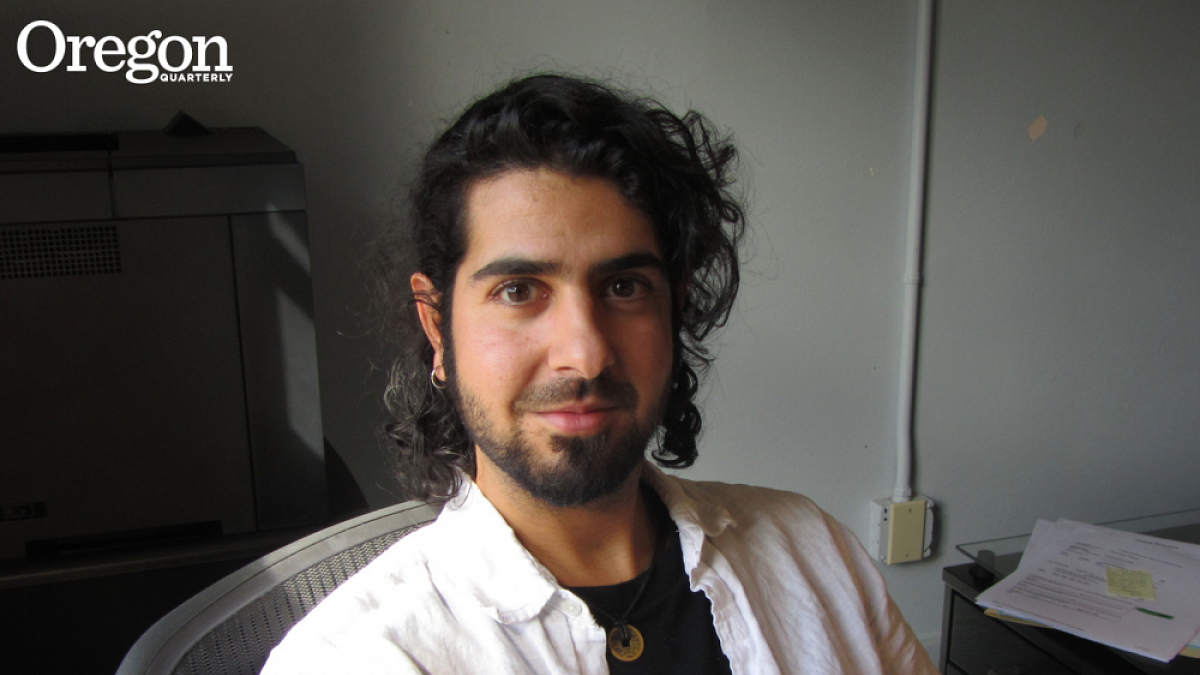Reaching out to your social networks is a good approach to solving a problem, but using that approach time after time may stunt your analytical ability.
That's the conclusion reached by University of Oregon assistant professor Azim Shariff and a team of international colleagues who studied how individuals in various social settings find answers to challenges. Social networks encompass many scenarios, from divisions within organizations, to fraternities and sororities, to connections on Facebook and Twitter.
"Social information is useful," says Shariff, who heads the Culture and Morality Lab of the UO Department of Psychology. "It helped participants get to the answer, but it didn't help them understand the thinking process underlying that answer. If you have a good enough system to get information, you don't have to think at all. You don't need to develop a solution yourself."
While learning from others is an important cultural mechanism for adaptation, human capacity for independent analytical reasoning is equally important. The study found that social learning does not further this cognitive strategy.
Conducted at the UO and published in the Journal of the Royal Society Interface, an academic journal that promotes research "at the interface between the physical and life sciences," the study involved 100 subjects whose average age was just under 20. Working individually on computers, the subjects were faced with seven challenges and had five opportunities to provide solutions.
Most of the subjects were placed randomly in four distinct groups connected by a computer network. A control group consisted of individuals working solo, unconnected to others. The experimental groups faced five rounds of questions, which had to be completed within a particular time limit. They first tackled each question alone, but in each subsequent round, they saw the answers provided by others in their group. As the rounds progressed, each subject could stay with an answer or adopt one from others in their network. As the sequence progressed, more correct answers emerged.
Most of the initial answers were indicative of quick, intuitive assumptions. As individuals were exposed to more thoughtful answers, Shariff says, they adopted, or copied, an answer that revealed the need for analytical thinking, but they didn't learn the strategy to find the correct answer for themselves. "When people make false intuitive conclusions and are exposed to the analytic output of their peers, they recognize and adopt this correct output," he says. "But in every subsequent question, they defaulted back to the intuitive strategy and didn't engage in analytical reasoning."
In their conclusion, the researchers wrote, "Our results suggest that while people's common bias in favor of intuition can lead to problematic decisions, social learning fixes this problem, but only superficially. In other words, social learning does not seem to help individuals bypass their bias in favor of intuition, but rather helps society as a whole thrive despite this bias."
Shariff and coauthor Jean-François Bonnefon, a behavioral scientist at the Centre National de la Recherche Scientifique in Toulouse, France, designed the study based on an idea put to them by the paper's lead author, Iyad Rahwan, who heads the Social Computing and Artificial Intelligence Laboratory at the Masdar Institute of Science and Technology in Abu Dhabi, United
Arab Emirates.
Social networks are extremely useful in the short term, says Bonnefon, who studies judgment and decision-making. "You have a problem, you go on YouTube and you see someone solving your problem and you imitate the solution. But that will not tell you how to think through the problem so that you can generalize the solution to a related problem. You become dependent on your social network."
This dependency is problematic from a cultural evolutionary standpoint, Shariff says. "If nobody is actually out there discovering solutions, if everybody is just imitating things, we create no new knowledge. We need people who are actually figuring out these questions."
—By Jim Barlow


